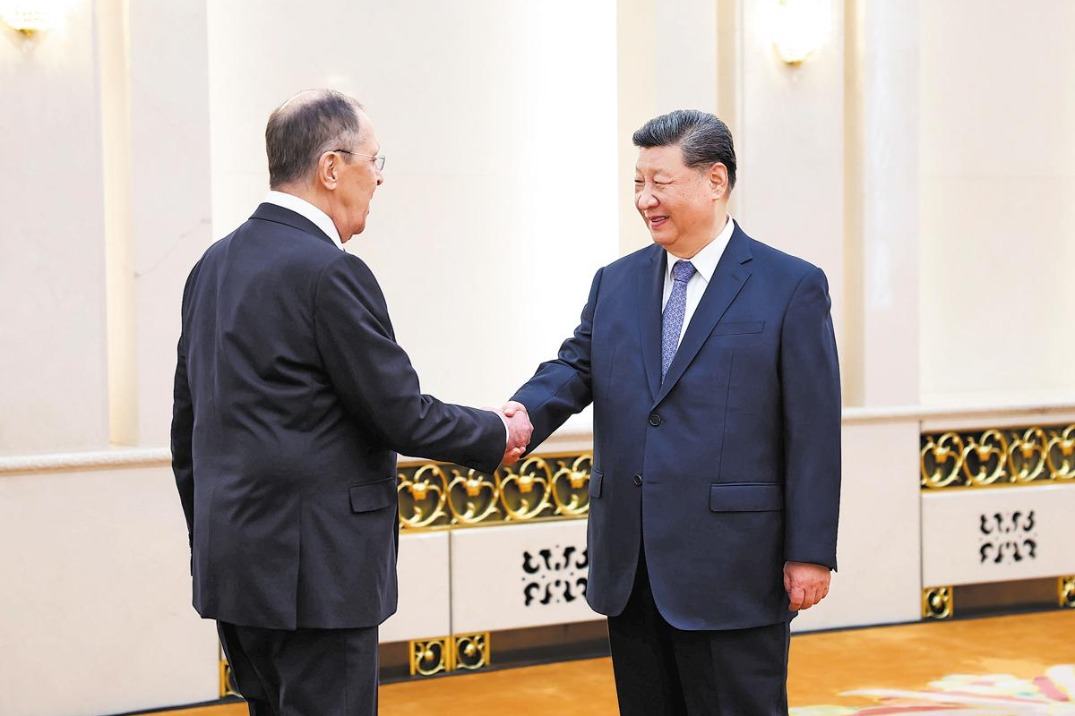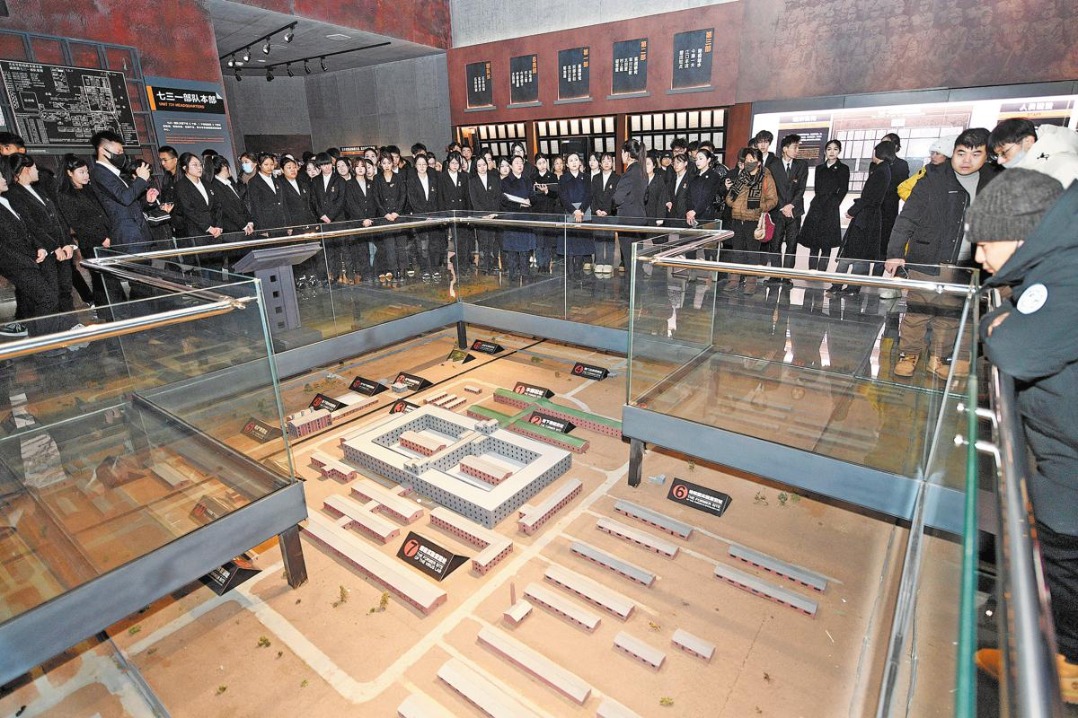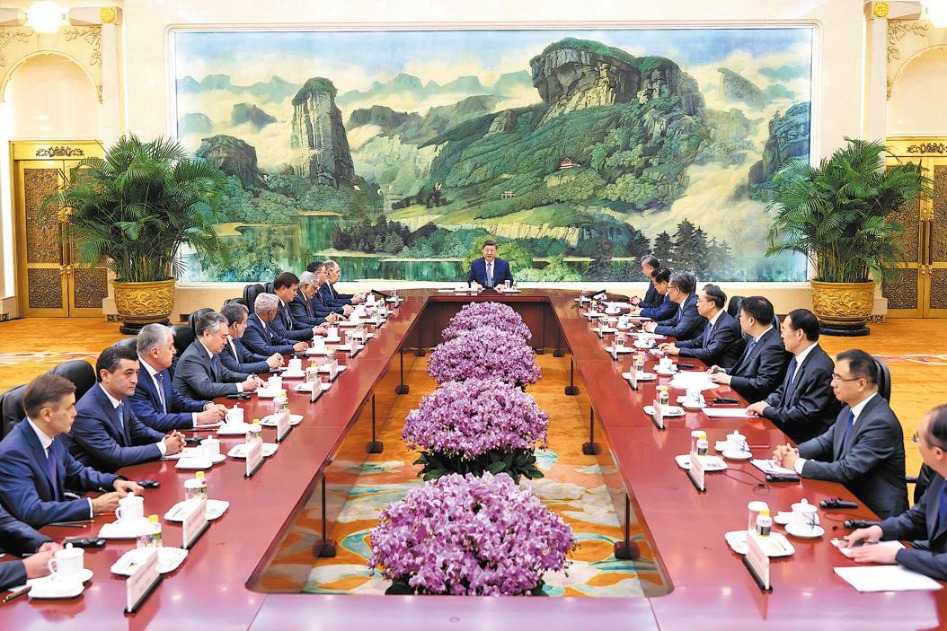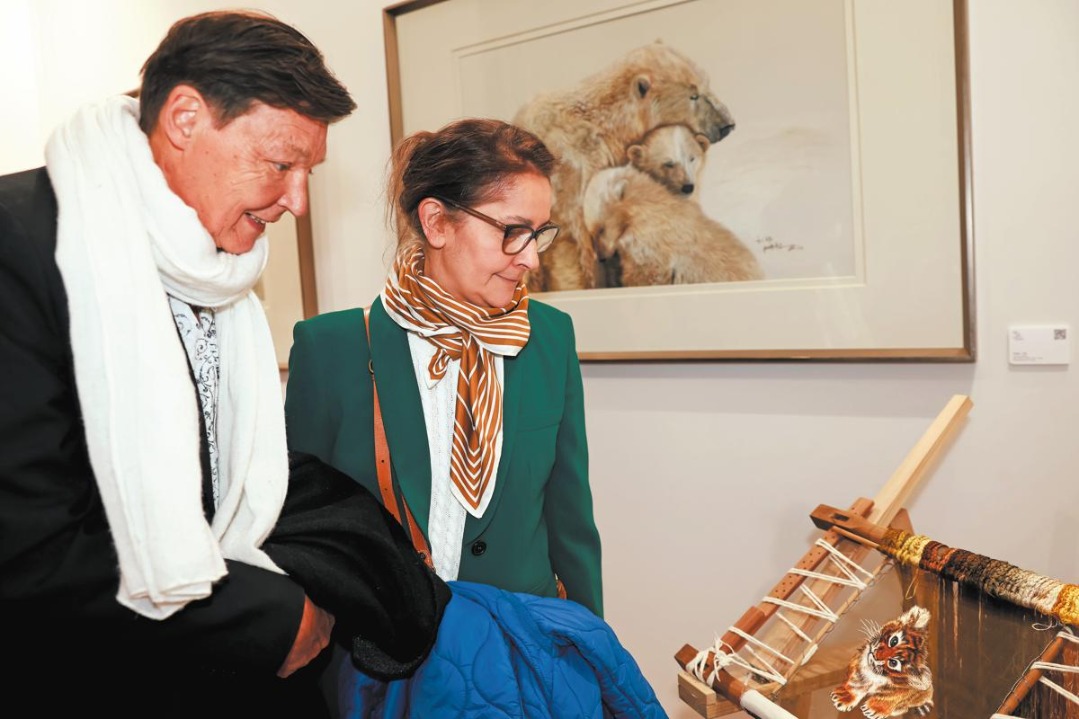Realizing the dream

Opera version of Chinese classic novel makes its way back from San Francisco. Chen Nan report
The Dream of the Red Chamber, written by Cao Xueqin during the Qing Dynasty (1644-1911), is considered one of China's greatest classical novels, and its latest rendition is set to thrill opera lovers in the country.
The San Francisco Opera rolled out the world premiere of its operatic production based on the novel in September last year.
A year later, the production is scheduled to tour three Chinese cities - Beijing, Hunan province's capital of Changsha and Hubei province's capital of Wuhan - to present six performances between Sept 8 and 23.
| Above: The opera The Dream of the Red Chamber will tour Beijing, Changsha and Wuhan in September. It premiered in the United States last year. Top left: Chinese tenor Shi Yijie will play the role of Jia Baoyu. Top right: The brains behind the opera - designer Tim Yip (left), composer Bright Sheng (right) and stage director Stan Lai. Photos by Jiang Dong / China Daily |
The Dream of the Red Chamber chronicles the downfall of the wealthy and influential Jia family during the imperial era, against the backdrop of the country's social and political upheavals.
Apart from its intricate portrayals of hundreds of characters and settings, it also offers a look at China in the philosophical context of Buddhism, Confucianism and Taoism.
The novel's importance and place in Chinese culture is also reflected in Redology, its own field in academia.
"This is the boldest project for me," says Chinese-American composer Bright Sheng, 62, who was recently in Beijing to promote the opera's China tour.
"Like many Chinese, I love the novel. I first read it when I was 12. The novel is like an encyclopedia, mirroring Chinese society then, from politics and social rules, to food, fashion and architecture. As a composer, it's been my longtime wish to turn it into an opera."
Sheng, who started learning the piano at age 4, graduated with a major in composition from the Shanghai Conservatory of Music in 1982. He moved to New York that year and studied composition at Queens College. In 1993, he earned his doctorate in music arts from Columbia University.
In 2011, the Chinese Heritage Foundation Friends of Minnesota, an NGO, and San Francisco Opera's artistic director, David Gockley, commissioned Sheng to compose for the opera of the Chinese classic.
In an earlier interview, Gockley said that "the novel contains all the elements needed for an opera: love triangles, jealousy, death and more".
"We asked a group of Redologists (specialists in The Dream of the Red Chamber) for their opinions on the novel and its main characters. Their answers varied, which gave us lots of space to work with," says Sheng.
Sheng invited Taiwan stage director Stan Lai to direct the opera and Chinese-American scriptwriter David Henry Hwang to help adapt the piece.
Initially, Hwang turned down the invitation because he felt that the task of condensing the major novel was too daunting.
"I hadn't read the whole novel until Bright (Sheng) approached me to work on this opera. The three major characters (Jia Baoyu, Lin Daiyu and Xue Baochai) are complicated and beautifully drawn. But what particularly struck me is the novel as a whole: the period details, which summon an entire world of Chinese imperial splendor, largely lost to us today," says Hwang, who is the winner of the 1988 Tony Award for best play for M. Butterfly, which debuted on Broadway.
Hwang finally agreed because Sheng had a strategy for adapting the material into a two-hour opera, by focusing on the love triangle of the three main characters - Jia Baoyu, the pampered, rebellious young scion of the Jia family; his ethereally beautiful cousin Lin Daiyu, whom he falls in love with; and another attractive and talented cousin, Xue Baochai, who becomes his wife.
"It made sense to me to focus on the love triangle, then add enough of the other characters so we could give a sense both of the political intrigue, which appears to have enmeshed Cao's own family, and the spiritual frame illuminating the work's Buddhist and Taoist philosophies," says Hwang.
"As a Chinese-American, to have helped create a work, which has introduced this Chinese classic to the Western audience, this project means a lot to me. If we have done so successfully enough to also impress audiences in China, I will be happy to have made a contribution to the land where my parents were born."
The production centers on seven major roles onstage, against a luxurious set designed by Hong Kong art director and designer Tim Yip, who received an Oscar for his art direction of Ang Lee's global hit Crouching Tiger, Hidden Dragon in 2000.
Yip used "lots of fancy gauze" for the costumes because of the dreamlike setting. "The set design is extravagant because we wanted to present the big family's nobility," Yip says in Beijing.
In the world premiere of the opera last year, South Korean soprano Pureum Jo played the role of Lin, Chinese tenor Shi Yijie played Jia and Chinese mezzo-soprano Wang Nian played Xue.
Shi will join the China tour and London-based Chinese soprano Wu He, who graduated from London's Royal Academy of Music, will play Lin. Mezzo-soprano Shi Lin will play Xue.
"The story is well organized and told by a monk as narrator - which is a creative design. The monk is both like a storyteller and the author Cao, who witnesses the tragedy," says Shi Lin, a 27-year-old singer, who studied music in Germany and the United States.
Now, she travels worldwide and sings with the Zurich Opera House.
One of Shi Lin's favorite lines in the opera is "women's only chance for happiness is to marry well".
"This line represents the role of Xue Baochai, who is a smart and sophisticated woman," she says.
The Hangzhou Philharmonic Orchestra and the Chorus of the State Opera of Dnipro, Ukraine, will perform on the China tour as well.
Contact the writer at chennan@chinadaily.com.cn
(China Daily European Weekly 09/01/2017 page22)
Today's Top News
- Beijing supports Tehran in maintaining dialogue
- Stabilizing global supply chains vital to intl market
- Visa facilitation steps boost number of foreign visitors
- Japan hypes excuse for its military build-up: China Daily editorial
- Philippine defense secretary's remarks undermine regional peace efforts
- Mainland strongly opposes Lai's planned 'transit' through US































